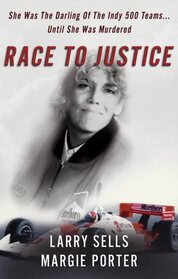
The problem with ghostwriting is that you are revealing a story that was never yours to tell. It’s someone else’s story, someone else’s pain. The glory of the task is that, as you immerse yourself in the story, it becomes your own. You connect to the people and begin to feel all the layers of their experience. You begin to visualize the people and the actions that you are trying to describe on paper.
In the process, the story evolves from “Just the facts, ma’am,” to realities that begin to haunt your dreams. Even though the events were not a part of your daily experience, they become emotionally true. In the case of a murder, you become haunted, maybe even pause to wonder what the victim would be doing today if…
It’s that niggling “if” that always gives one pause because murder can never be undone, and aside from finding some semblance of justice in the courtroom, there is no closure.
Just last night, I felt the pain. I came across a victim’s photo and I felt weepy. My guts contracted and I had to pause, feeling the sorrow. Yet, I never met this victim face-to-face. I never heard her voice or saw her dance. And still I felt the loss because through my own words I had expressed and experienced her story.
I have long believed that the greatest benefit of being a writer is that you get to live more than one lifetime. It’s true. If you write fiction, you create characters and their experiences. Their lives inform your own. If your character, in the course of your story, becomes a victor over his own dishonesty or self-centeredness, you learn the lesson with him and celebrate his victory.

If you write nonfiction, such as true crime, you immerse yourself in the devastation of the crime. You meet friends and family of the victim. You see where the victim lived and how they lived. You find out how they impacted the lives of others. At first, these are all just a list of who, what, when, where, why, and how. At first, it’s just statements that make up a story.
But the story grows flesh and you are swallowed into the “why” and the “how.” You struggle with the unanswerable questions. In the dead of night you wonder how any person could desire to kill another. And why in such a cruel manner? You make mental lists of how the victim could have avoided the dreadful fate. I think this is one reason that women are so addicted to crime shows and crime books. We live the experience vicariously, and in the process, learn survival skills and are alerted to mistakes we should avoid.

When, as a writer, I have come to experience the story in all its flesh and glory, when it becomes a part of my own life, then I feel ready to invite the reader in. I welcome the ready to come to the table and experience a life, and often a death, that is not their own.
I invite the reader to become haunted by a person they will never meet.
Margie Porter recently wrote true crime book, RACE TO JUSTICE, with Larry Sells. Check it out here!
Leave a Reply
You must be logged in to post a comment.